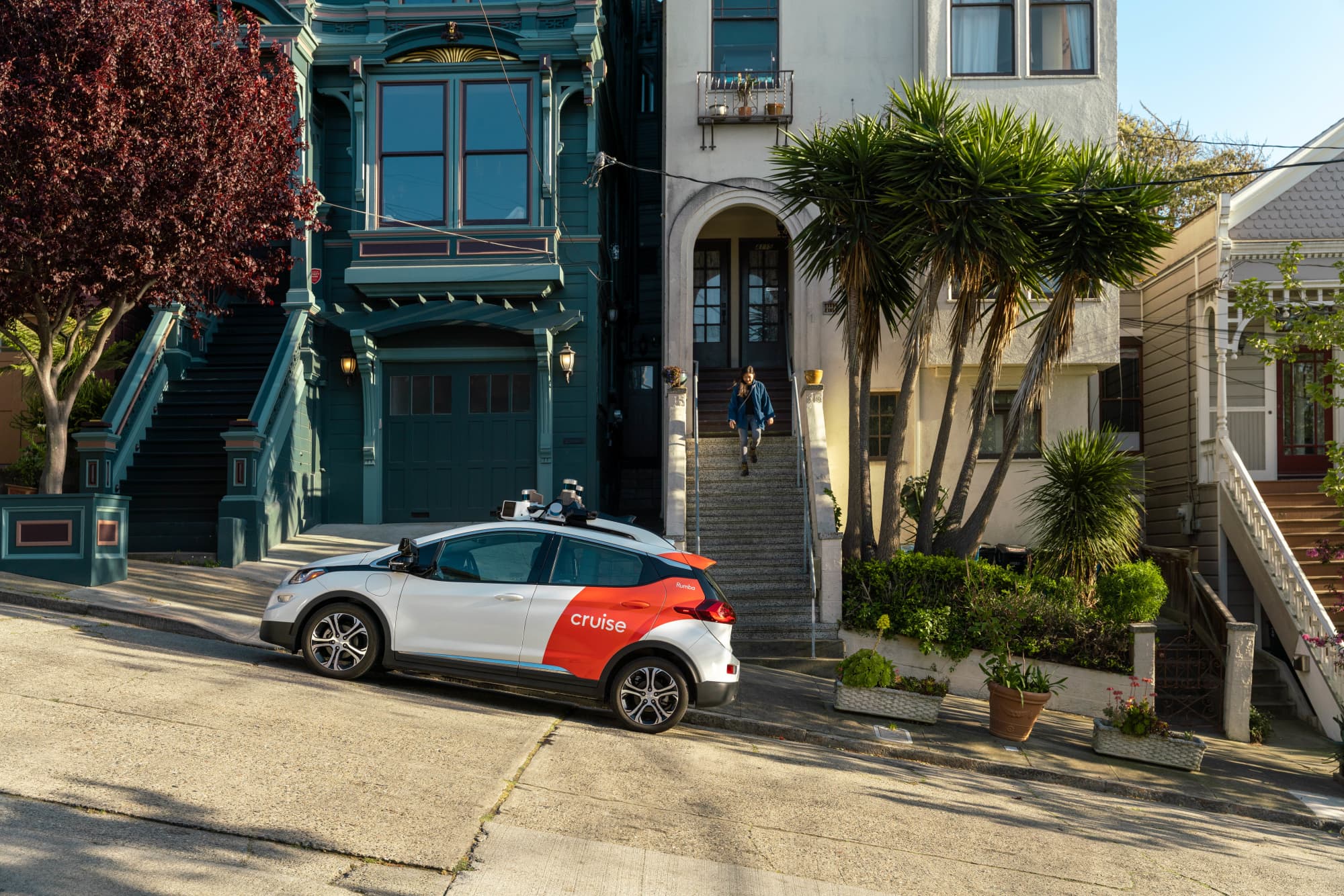Cruising Across Campus: How One Self-Driving Car Company Is Helping Students Get Where They Need to Go
 Credit: Photo Credit: Cruise
Credit: Photo Credit: Cruise- Last December, self-driving car company Cruise partnered with the University of San Francisco to offer free rides to students.
- Students can request rides to most destinations in the city from 9 p.m. to 5:30 a.m.
- Now, the program has been extended through the summer.
When University of San Francisco student Myles Marquez first heard that his school was partnering with a self-driving car company to offer free rides to students, he was a bit hesitant to jump in the backseat.
In December, the self-driving car company Cruise launched a first-of-its-kind partnership with the University of San Francisco (USF), a private, Jesuit university in California with some 6,000 undergraduate and 3,600 graduate students.
“I’m no stranger to the usual Uber here and there, so hearing about free rides was really cool,” he said. “At first, a whole lot of students were pretty hesitant to try them out. Getting into a car with no driver is pretty spooky after all.”
Now, Cruise and USF have extended the partnership through the summer, allowing current and freshly graduated students such as Marquez to continue requesting driverless rides through early August.
Currently, access to Cruise is offered through a waitlist. Through the partnership, USF students were able to sign up with their student email for Cruise’s early access program and request free rides from 9 p.m. to 5:30 a.m. through the app.
Rollout was slow, Marquez says, with some students having access before others. However, by the end of the semester, more and more students had gained access to Cruise and taken a ride.
“Thousands of students have taken tens of thousands of rides and have been integrating Cruise into their daily lives, and their feedback has been invaluable,” Andrew Wagle, head of strategic partnerships and planning for Cruise, told BestColleges.
“Now, we’ve … extended [the program] through the end of the summer. This includes off-campus students and students that have transportation needs (work, athletics, friends, etc.) in our service area.”
Wagle said the partnership sought to offer sustainable and reliable transportation for students attending school in the city.
“We know that students are eager for affordable and safe transportation alternatives as they engage with their local cities — whether it’s for class, jobs, or socializing. And Cruise can certainly be that transportation option,” he said.
Cruise is no stranger to partnering with local organizations, something Wagle said is a guiding principle for the company. Besides USF, Cruise has also worked with the San Francisco Giants and the San Francisco-Marin Food Bank, delivering millions of meals with their driverless vehicles.

Marquez says he takes a Cruise car at least two or three times a week, and he enjoys the freedom and futuristic feel the “robot cars” offer.
“Everyone I know has loved it. In my friend group of eight, everyone has access to the app, and we all use them as often as possible. It’s a pretty fun shared experience with a bunch of other people on campus,” he said.
“Every now and then, we’ll get an odd look from a passerby or two, but it’s always really fun waving at them from inside the car. Plus, stepping out or getting into the cars in front of others is a massive flex.”
Marquez also emphasized how helpful the vehicles are to students who may be hesitant to use other ride-hailing services where they might not know who is at the wheel.
“Looking at the way things are right now, Cruise is an absolute game changer in terms of safe travels to and from late-night destinations,” he said. “Many female friends of mine tend to prefer taking Cruises home after a night of drinking instead of an Uber because of the privacy and safety they get in a self-driving car.”
While Cruise cars can be found in other cities including Austin, Dallas, Houston, and Phoenix, USF is the only college campus that Cruise has partnered with so far. Wagle said the company is “excited about deepening our relationships with campuses in all the cities we operate in.”
As a rider, Marquez says he “definitely recommends” Cruise cars for campuses looking at expanding safe and reliable methods of transportation for students. However, he hopes that the rides remain free and accessible to all.
“I do believe that Cruise has a responsibility to make this kind of thing accessible and affordable to as many students and people as possible,” he said. “They’ve really opened up a new avenue for ride-share safety, and I hope they know this.”